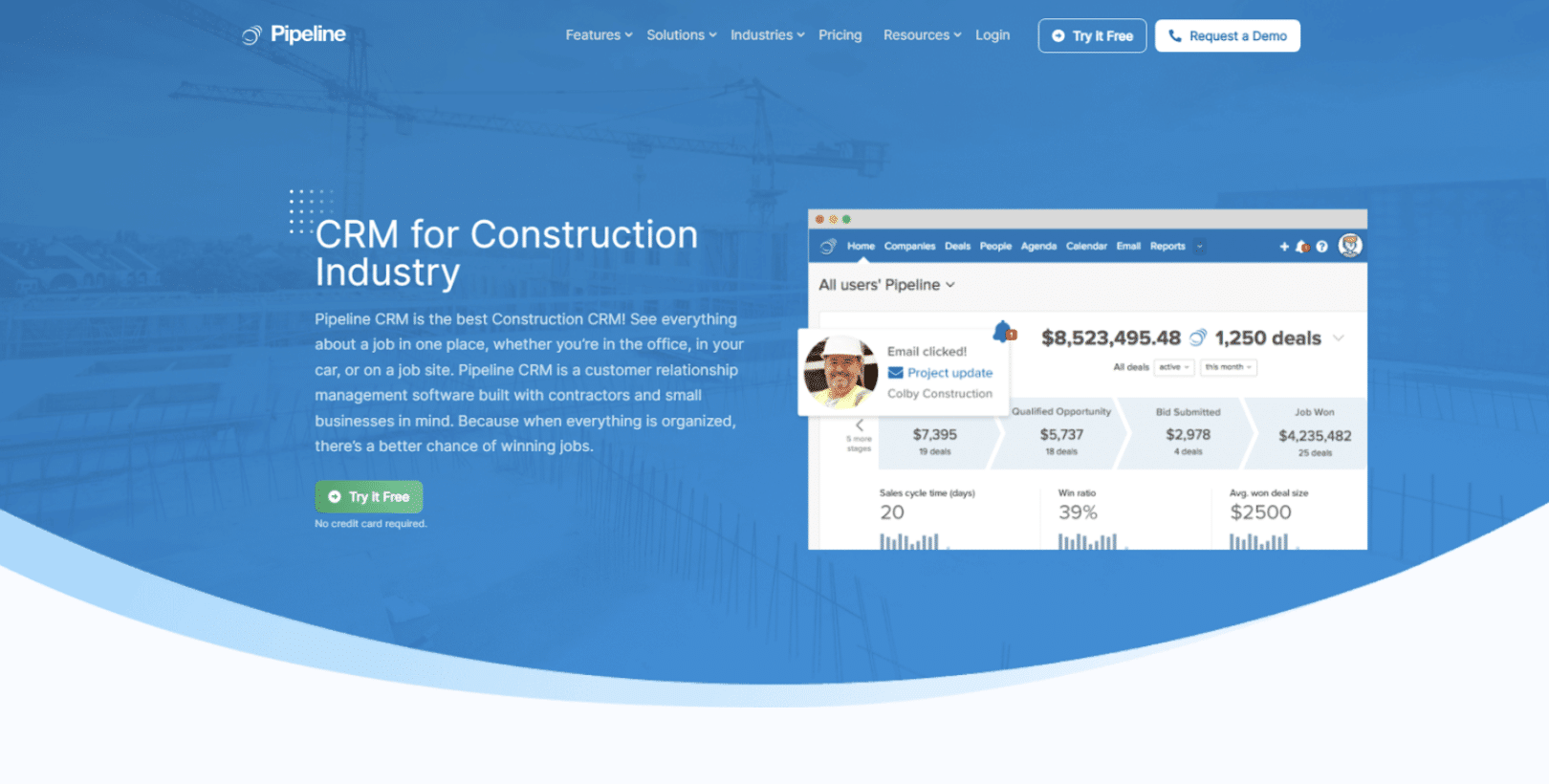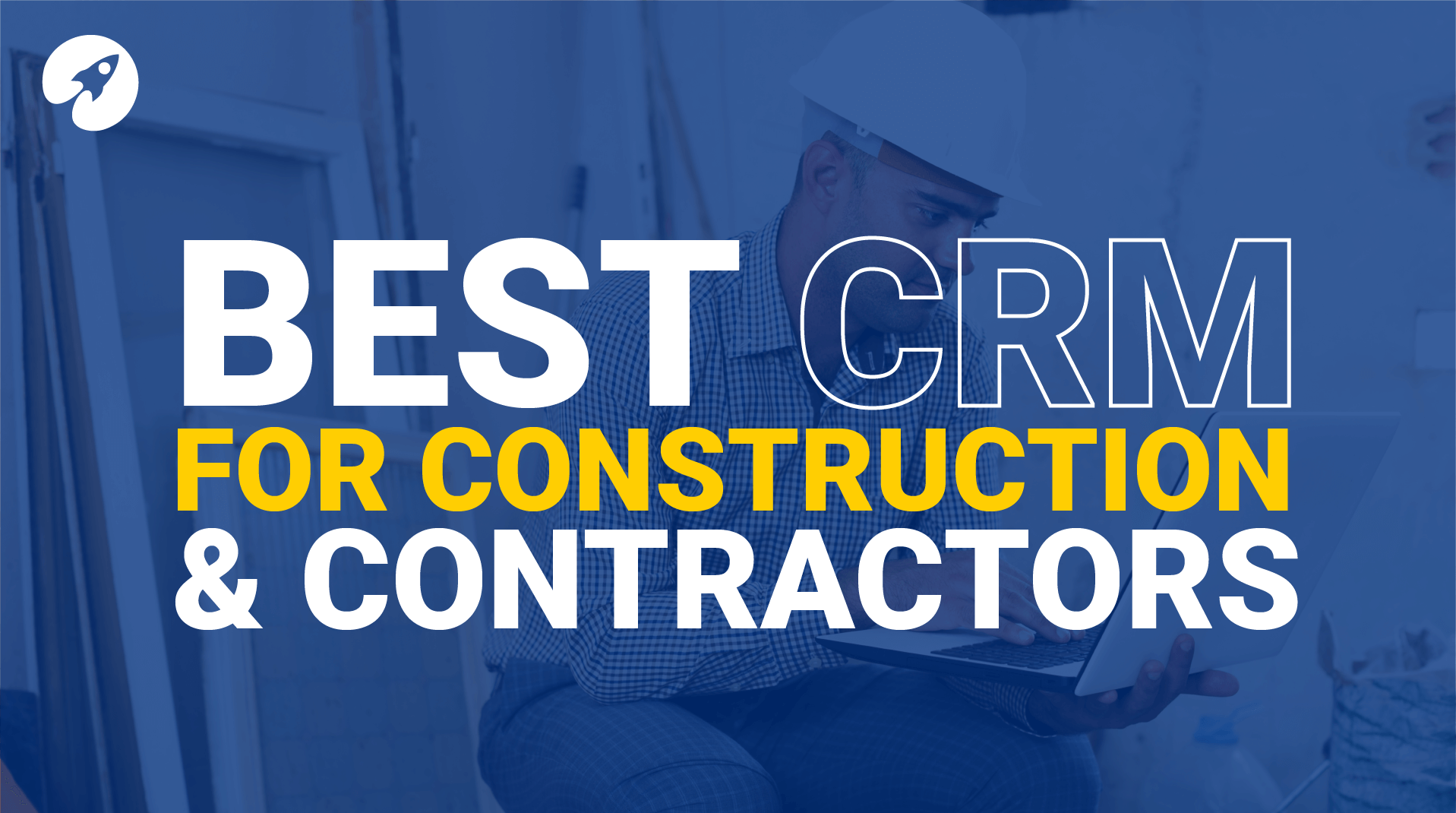In the competitive world of construction, finding the best CRM for construction businesses is crucial for success. A robust CRM can streamline operations, enhance collaboration, and boost productivity, giving your business a competitive edge.
With features tailored to the unique needs of construction companies, a CRM can help you manage projects effectively, track leads seamlessly, and nurture customer relationships. Read on to discover the essential considerations, benefits, and best practices for choosing and implementing the best CRM for your construction business.
CRM Features for Construction Businesses

For construction businesses, streamlining operations and improving efficiency are crucial for success. Customer relationship management (CRM) systems play a vital role in achieving these goals by providing essential features tailored to the specific needs of the industry.
Project Management
Effective project management is a cornerstone of construction businesses. CRM systems offer robust project management capabilities, allowing teams to create and manage projects, track progress, assign tasks, and collaborate seamlessly.
Lead Tracking
Lead generation and tracking are essential for growing a construction business. CRM systems provide tools to capture and qualify leads, track their progress through the sales pipeline, and nurture relationships with potential clients.
Contact Management
Managing contacts effectively is crucial for maintaining strong relationships with clients, partners, and suppliers. CRM systems offer comprehensive contact management features, including the ability to store and organize contact information, track interactions, and schedule follow-ups.
Benefits of Using a CRM in Construction
Implementing a CRM system in a construction business can bring significant benefits, enhancing communication, collaboration, and productivity. These advantages help construction companies streamline their operations, improve customer relationships, and increase profitability.
Enhanced Communication
- Centralized platform for all communication channels, including email, phone, and chat.
- Improved coordination between teams, ensuring timely and accurate information exchange.
- Automated notifications and reminders to keep everyone informed about project updates and deadlines.
Improved Collaboration
- Shared access to project documents, plans, and specifications.
- Real-time updates and version control to ensure everyone is working on the latest information.
- Online forums and discussion boards for team members to share ideas and collaborate on solutions.
Increased Productivity
- Automated workflows and processes to streamline tasks and reduce manual labor.
- Improved visibility into project progress and resource utilization.
- Data-driven insights to identify areas for improvement and optimize operations.
Case Study: ABC Construction, Best crm for construction business
ABC Construction implemented a CRM system and experienced a 25% increase in project completion rates. The improved communication and collaboration among team members allowed for faster decision-making and reduced rework.
Considerations for Choosing a CRM for Construction
Selecting the right CRM for a construction business requires careful consideration of industry-specific needs and capabilities. Key factors to evaluate include:
Industry-Specific Features
- Project management tools, such as scheduling, task tracking, and collaboration
- Contact management with customizable fields for construction-related information (e.g., project roles, licenses, equipment)
- Lead generation and qualification specifically tailored to the construction industry
- Integration with construction-specific software, such as accounting and project management tools
Scalability
- Ability to accommodate the growth and complexity of construction projects
- Support for multiple users and teams across different locations
- Capacity to handle large volumes of data and maintain performance
Ease of Use
- Intuitive user interface that minimizes training and onboarding time
- Customization options to tailor the CRM to specific business processes
- Mobile accessibility for remote teams and field workers
Table Comparing CRM Solutions
| CRM Solution | Industry-Specific Features | Scalability | Ease of Use ||—|—|—|—|| Salesforce | Extensive, customizable | Excellent | Good || HubSpot | Limited, but growing | Good | Excellent || Zoho CRM | Good, but not as comprehensive as Salesforce | Good | Very good || Microsoft Dynamics 365 | Excellent, including integration with Project Service Automation | Good | Good || Basecamp | Limited, but project management-focused | Good | Excellent |
Best Practices for CRM Implementation in Construction

Implementing a CRM system in a construction business requires careful planning and execution to ensure success. Here are some best practices to guide you through the process:
Data Management
Data is the foundation of any CRM system. Establish clear guidelines for data collection, storage, and management. Ensure data accuracy and consistency by implementing data validation and verification processes. Regular data audits can help identify and correct any data discrepancies.
User Training
User adoption is crucial for CRM success. Provide comprehensive training to all users, covering system functionality, best practices, and data management protocols. Make training materials easily accessible and offer ongoing support to address user queries and reinforce learning.
Ongoing Support
CRM implementation is an ongoing process. Provide ongoing support to users through technical assistance, regular system updates, and user feedback mechanisms. Monitor system usage and performance to identify areas for improvement and ensure the CRM remains aligned with business needs.
Integration with Other Construction Software
Integrating a CRM with other construction software is crucial for enhancing efficiency and accuracy. By seamlessly connecting with project management tools and accounting systems, construction businesses can streamline their operations, reduce manual errors, and improve overall data management.
Improved Data Accuracy
Integration eliminates the need for manual data entry, minimizing the risk of errors. Real-time data synchronization ensures that information is consistently updated across all platforms, providing a single source of truth for project and customer data.
Streamlined Workflows
Automated data exchange between the CRM and other software eliminates repetitive tasks, such as manually transferring project updates or invoice details. This streamlines workflows, freeing up time for teams to focus on more strategic initiatives.
Enhanced Efficiency
Integration provides a holistic view of project and customer information, enabling teams to make informed decisions based on real-time data. Access to project progress, billing details, and customer interactions in one central location enhances collaboration and improves overall efficiency.
Mobile CRM for Construction: Best Crm For Construction Business
Mobile CRM is an essential tool for construction businesses, as it allows employees to access and manage customer data, schedules, and project information from anywhere. With mobile CRM, construction professionals can stay connected with clients, colleagues, and subcontractors in real-time, ensuring seamless communication and collaboration.
Mobile CRM offers numerous benefits for construction businesses, including improved access to information, real-time updates, and enhanced communication on the go. With a mobile CRM, construction professionals can easily access customer information, project details, and schedules from their mobile devices.
This allows them to make informed decisions and respond to customer inquiries quickly and efficiently, even when they are not in the office.
Features of Mobile CRM for Construction
Mobile CRM systems for construction businesses often include features specifically designed to meet the needs of the industry, such as:
- Project management tools that allow users to track project progress, assign tasks, and monitor deadlines.
- Customer relationship management (CRM) tools that help users manage customer interactions, track sales opportunities, and provide customer support.
- Field service management tools that allow users to schedule appointments, track technician location, and manage work orders.
- Document management tools that allow users to store and share project documents, such as blueprints, contracts, and invoices.
- Mobile forms that allow users to collect data in the field, such as site inspection reports, time sheets, and material requests.
CRM Trends for Construction
The construction industry is constantly evolving, and CRM (Customer Relationship Management) systems are no exception. Emerging trends in CRM for construction businesses include artificial intelligence (AI), machine learning (ML), and cloud-based solutions. These trends are shaping the future of CRM in the construction industry by making it more efficient, effective, and accessible.
AI and ML
AI and ML are being used to automate tasks, improve decision-making, and provide personalized experiences for customers. For example, AI can be used to:
- Qualify leads and prioritize sales opportunities
- Automate marketing campaigns
- Provide customer service
ML can be used to:
- Identify patterns and trends in customer data
- Predict customer behavior
- Develop personalized marketing and sales strategies
Cloud-based Solutions
Cloud-based CRM systems are becoming increasingly popular because they offer several advantages over on-premises systems, including:
- Scalability: Cloud-based systems can be easily scaled up or down to meet the needs of your business
- Accessibility: Cloud-based systems can be accessed from anywhere with an internet connection
- Cost-effectiveness: Cloud-based systems are typically more cost-effective than on-premises systems
These trends are having a major impact on the construction industry. By adopting these technologies, construction businesses can improve their efficiency, effectiveness, and customer satisfaction.
Ending Remarks

Embracing a CRM system is a game-changer for construction businesses seeking to streamline operations, enhance collaboration, and drive growth. By carefully considering the factors Artikeld above and following the best practices for implementation, you can harness the power of CRM to transform your construction business and achieve lasting success.